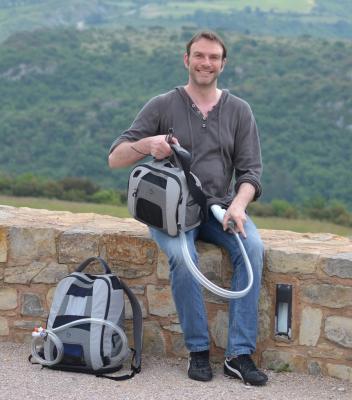
October 26, 2016 — The U.S. Food and Drug Administration (FDA) provided an update and additional information regarding patient safety issues involving the SynCardia Systems Temporary Total Artificial Heart (TAH-t) Companion 2 Driver System (C2 Driver System). The FDA also updated providers on recent events with an additional SynCardia pneumatic driver system, the Freedom Driver System.
The TAH-t functions as a bridge to a heart transplant in a small population of heart failure patients with severe bi-ventricular failure. The FDA said there continues to be a higher mortality rate for the subgroup of patients requiring pre-implant circulatory rescue interventions when using the C2 Driver System compared to those using the CSS Console. The mortality rates for patients who did not require pre-implant circulatory rescue interventions were similar for the C2 Driver System compared to the CSS Console. The most recent post-approval study results suggest that there is also a difference in clinical performance between the C2 Driver System and the CSS Console in terms of neurological adverse events.
As a condition of approval of the C2 Driver System, the FDA required SynCardia to conduct a post-approval study assessing post-market performance. The study relies on data from the Interagency Registry for Mechanically Assisted Circulatory Support (INTERMACS), and compares outcomes for patients who were initially supported with the C2 Driver System and the CSS Console during the same time period (implanted on June 20, 2012 or after). The most recent results from the ongoing post-approval study regarding mortality and neurological adverse events are in the recent letter to healthcare providers.
FDA Recommendations
The FDA has the following recommendations for healthcare providers:
• Carefully consider these mortality and neurological adverse event results, and device malfunction reports when making treatment decisions and device selection, and discuss the risks and benefits of these devices with your patients.
• Report any adverse events or suspected adverse events experienced with the SynCardia TAH-t Driver Systems (the C2 Driver, the CSS Console, or the Freedom Driver). Voluntary reports can be submitted through MedWatch, the FDA Safety Information and Adverse Event Reporting program.
• Device manufacturers and user facilities must comply with the applicable Medical Device Reporting (MDR) regulations. Health care personnel employed by facilities that are subject to FDA's user facility reporting requirements should follow the reporting procedures established by their facilities. Prompt reporting of adverse events can help the FDA identify and better understand the risks associated with medical devices.
• Return all devices associated with, or suspected to be associated with, any adverse events to the manufacturer for evaluation to help them and FDA better understand the issue.
For more information: www.fda.gov/Safety/MedWatch/SafetyInformation/SafetyAlertsforHumanMedicalProducts/ucm526703.htm?source=govdelivery&utm_medium=email&utm_source=govdelivery


 May 30, 2025
May 30, 2025 









